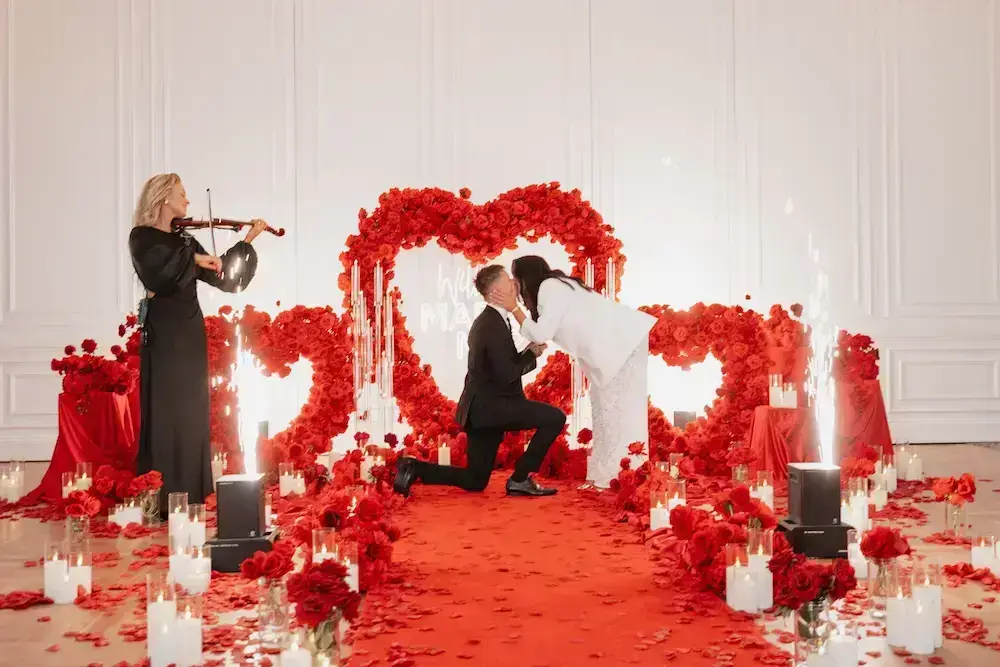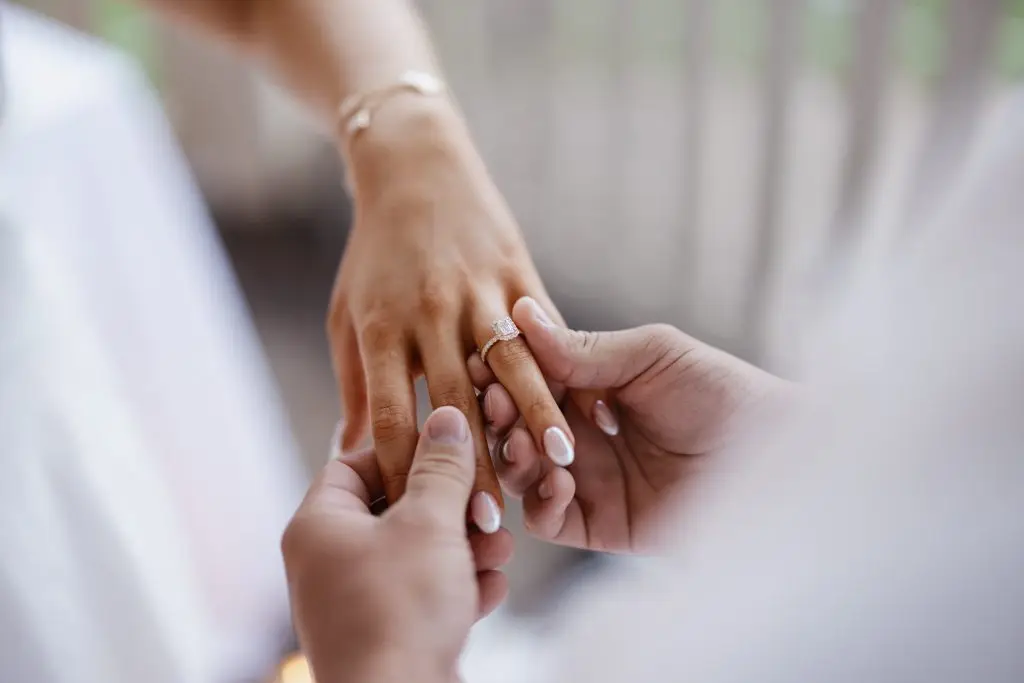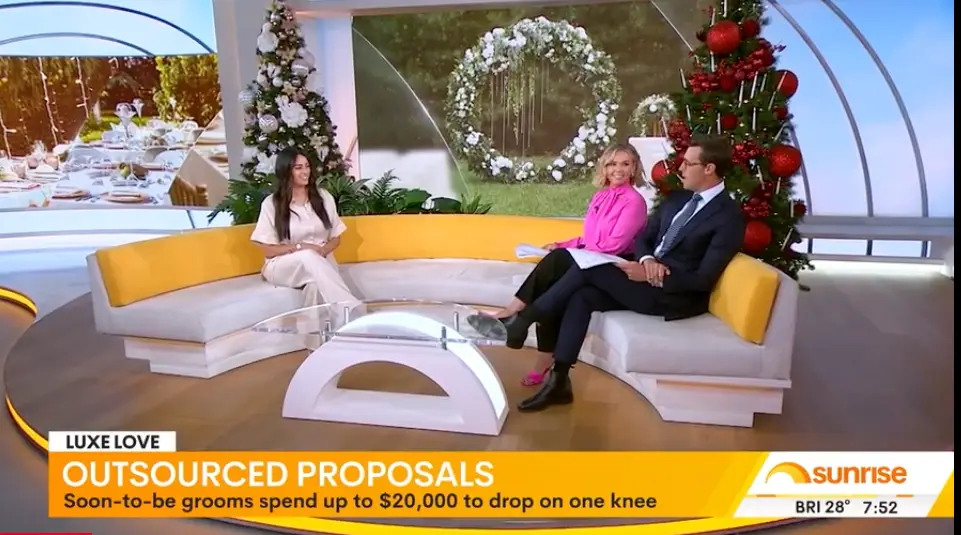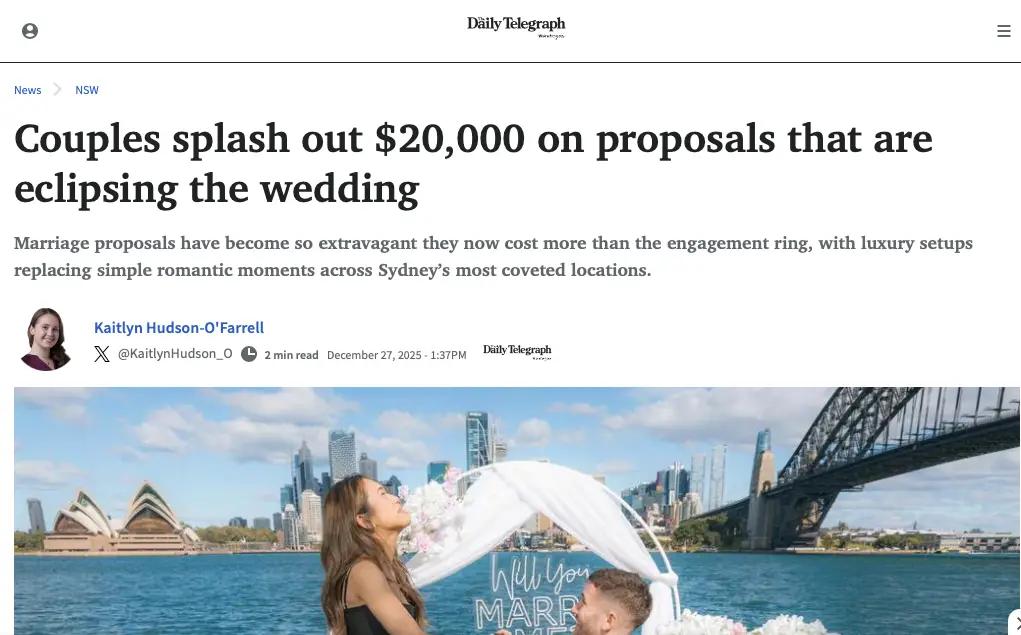It was the middle of 2015 when Shauna Ginnelly made the decision to propose to her long-term partner on February 29, 2016.
Irish legend dictates that women can only ask their partner for their hand in marriage on a leap day, so Ginnelly would have had to wait another four years if she missed her opportunity.
Supposedly, the tradition was designed to balance the conventional roles of men and women in a similar way to how the leap day balances out the calendar. Centuries later, women are still using this folklore to ask for their partner’s hand in marriage.
But the 23-year-old Tupperware party host and mother eventually decided that the tradition wasn’t all that important.
On September 8, 2015, after seven years together, Ginnelly popped the question to Steven Webb, 26. The two fell in love during their teenage years, and then spent some time apart before fate brought them back together. Of course, he said “yes”.
A few decades ago, a woman proposing to a man would have seemed ridiculous, but times are changing and gender roles are constantly evolving.
In January 2014, GfK Public Affairs & Corporate Communications conducted a survey in the US in which 74 per cent of respondents said they saw it as acceptable for a woman to propose.
Similarly, a 2016 survey by Australia’s leading and largest bridal fair One Fine Day, QV Melbourne, found just two per cent of female respondents had popped the question, with four per cent planning to do so. More than 65 per cent of women said the idea that only men should propose was old- fashioned, but most admitted they would struggle to find the courage to propose themselves.
So, should the tradition live on?
There is no denying today’s culture still pushes for the traditional male proposal. Typically, the man gets down on one knee in a romantic setting filled with candles and roses, and surprises the woman with a sparkling diamond ring.
But, if people never challenge society’s assumptions, things will never change.
Six weeks after Ginnelly proposed, Webb planned a romantic re-proposal for her. He was so surprised and flattered by her bravery to pop the question, he felt she deserved a gesture in return. A mine worker and a professional skydiver, Webb arranged to take Ginnelly a to the Pinjarra Skydiving drop zone, pretend to hurt himself and propose when she checked if he was okay. He would unveil a small ring box embedded with the words “I know you were waiting for this”, and, with a glistening diamond ring, he would ask for her hand in marriage.
Unfortunately, the weather stopped him from pulling off the elaborate stunt, so he presented her with the ring and together they laughed. Both knew the fancy proposal just wasn’t on the cards.
But Webb’s inclination to re-propose only confirms the male desire to be in the driver’s seat. How often do you hear of a woman deciding to re-propose to her partner because she’s flattered by his bravery to propose in the first place? Even though this gesture is romantic on the surface, it suggests that men can’t accept a woman taking charge of such a momentous event in a couple’s life.
My Proposal Co. director Gloria Gammo says most women choose not to propose because tradition has taught them that when the man is ready, he will do the asking. Until then, women must wait graciously for the moment he finally pops the question. Gammo says she believes that if women decided when to get engaged, proposals would take place much sooner.
“Women don’t want to undermine their man, and they don’t want him to feel like they are taking control of the relationship,” she says.
“Let’s face it, the role of men and woman in relationships has changed significantly in the past 30 years. Women are now the breadwinners, look after household finances etcetera, but that doesn’t mean that they want to take charge of everything.”
Sydney proposal planning company Buy the Cow’s proposal co-ordinator Claire Whelpton says she loves that tradition lives on through the generations, but it’s wonderful when women want to take the pressure off their partner.
Whelpton says she often receives emails from women asking her to give their partner a “nudge” in the right direction. She then sends the male partner a generic email about the services offered and waits patiently to see whether they respond.
“Many women wouldn’t dare propose because it isn’t the norm,” she says.
“It is somewhat strange considering how times have changed. We are living in an age where sex roles are less defined and stereotyped as they were in the olden days, so you would think proposal traditions would have also moved on.”
Before January 2016, Whelpton only had a handful of women approach her for assistance. At the start of this year, she was inundated with requests from women and had no idea why, until she learned about the leap year custom.
Ginnelly and Webb say their story is great for a laugh and they look forward to sharing it at their wedding.
“So, how did he propose?” guests will ask. Well, that is an interesting story…




